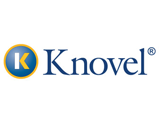Nature Publishing Group has selected single-cell sequencing as its Method of the Year for 2013 (www.nature.com/nmeth/index.html). The publication, in explaining its choice, noted that “methods to sequence the DNA and RNA of single cells are poised to transform many areas of biology and medicine.” The publication continued: “Single-cell genome and transcriptome sequencing methods are generating a fresh wave of biological insights into development, cancer and neuroscience.”
Fluidigm, an industry-leader in single-cell genomics, has pioneered products capable of elucidating the benefits of understanding biology at the level of the individual cell. Today, most sequencing is performed on tissue samples, a genomic stew of cell populations in which biological differences between cells at the molecular level are hidden by averaging the signal of all the cells into one averaged value.
According to Nature, “Single-cell methods offer a way to dissect this heterogeneity. Single-cell DNA sequencing can reveal mutations and structural changes in the genomes of cancer cells, which tend to have high mutation rates. This information can be used to describe the clonal structure and to trace the evolution and spread of the disease. These approaches are also revealing a surprising level of mosaicism in somatic tissues such as the brain, the functional consequences of which will need to be elucidated in the coming years.”
Until now, a substantial proportion of single-cell research has focused on imaging — relying upon microscopy to differentiate cell populations based upon phenotypic characteristics; however, a growing body of scientific research has demonstrated that cells with the same size, shape and immunophenotype exhibit significant differences in expression and genomic variation at the molecular level. Single-cell sequencing is enabling researchers to define new molecular profiles for sub-populations. Researchers are also able to monitor these molecular changes as cells are activated, observe cells develop, and track how cells respond to environmental stimuli.
“This is an excellent choice by the editorial board of Nature Methods,” said Gajus Worthington, Fluidigm president and chief executive officer. “The scientific contributions of our customers, enabled by single-cell genomics, have been profound. There are now more than 100 peer-reviewed single-cell publications based on Fluidigm technology. We are part of a growing community that believes single-cell genomics will broadly and fundamentally revolutionize biology.”
Worthington continued, “The timing of this announcement by Nature Methods represents a bit of serendipity as we just announced our new single-cell DNA sequencing workflow for our C1 System days ago.”
Fluidigm Single-Cell Technology
Fluidigm has developed a unique approach to single-cell genomics based on its microfluidic technology. Its innovative technologies enable highly parallel RNA and DNA analysis from samples containing only a few hundred cells. By integrating and simplifying multiple steps in a universal sample prep workflow for single-cell DNA sequencing (targeted, whole exome and whole genome sequencing) researchers can rapidly and reliably isolate, process, and profile individual cells for multiple genomics applications.
Last week, Fluidigm announced a universal sample prep workflow for single-cell DNA sequencing that runs on its C1TM Single-Cell Auto Prep System. This workflow streamlines targeted, whole exome and whole genome sequencing in heterogeneous cell populations and enables researchers to discover and screen somatic mutations, such as SNP, small indels, and translocations. Somatic mutations are non-inherited, random mutations that are accumulated over time and may play an important role in the origin and progression of complex diseases, such as aging, cancer, immunity, and neurodegenerative disorders.
Earlier this year, Fluidigm released a protocol for single-cell mRNA sequencing to support whole transcriptome analysis. This key application enables researchers to measure the differential expression across the transcriptome within cell sub-populations as well as to identify novel transcripts and alternate splicing patterns. The protocol has been widely accepted by several major institutions around the globe and resulted in two Nature Methods publications in 2013.
In addition to sequencing, Fluidigm’s technology allows single-cell gene expression measurement that is revolutionizing the understanding of gene regulation and settling many biological debates that have raged for years.



































